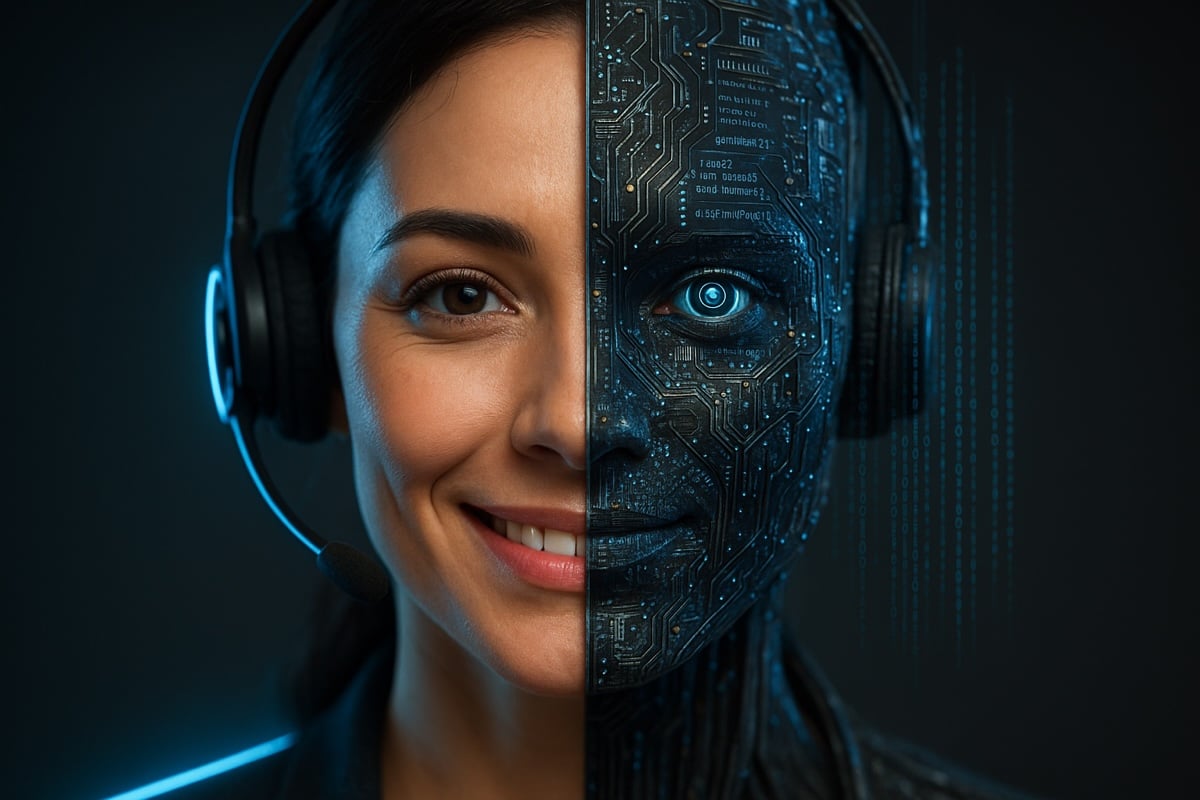August 7, 2025
5 min read
Mitch Wagner
Amdocs and Nvidia develop AI agents with brand personality, empathy, and customization to improve telco customer service efficiency and satisfaction.
'Personality Engineering' Puts a Human Face on Telco AI Agents
Amdocs and Nvidia are collaborating to create AI customer service agents that reflect brand identity and adapt to customer needs through a process called "personality engineering." This approach aims to make AI agents more empathetic and relatable, improving customer interactions in the telecommunications industry. AI customer service agents, sometimes humorously called "clankers," often suffer from a poor reputation. Amdocs is working to change that by tuning these AI avatars to effectively represent the brand's language, visual identity, and values."Your agent is your brand representative, just like a human agent in the call center would be," said Hillel Geiger, Amdocs global VP of corporate marketing. AI agents must also consider the context of the conversation and the customer's profile to tailor interactions appropriately.
Consumer Preferences for AI Agents
Amdocs conducted a study involving 7,000 respondents across 14 markets to understand consumer preferences regarding AI agents' gender, age, and tone.- Gender: 45% preferred female-presenting agents, 25% male, and 30% had no preference. Among female respondents, 67% preferred female-presenting agents.
- Age: Preferences varied, with 39% having no preference, 35% preferring agents their own age, 14% younger, and 12% older.
- Tone: 58% preferred an empathetic tone, highlighting a desire to humanize AI despite knowing they are interacting with software. Chris Penrose, Nvidia global VP of business development, noted that even when interacting with AI, people tend to use polite language like "please" and "thank you," reinforcing the importance of empathy. Customers can customize AI agents' gender, age, and tone, creating countless permutations to optimize their experience. However, guardrails are essential to ensure AI agents respond appropriately and avoid undesirable topics such as politics.
- AI Agents: The Future of Business Automation and Customer Engagement
- AI Data Analytics: Driving Strategic Crypto Portfolios in 2025
Proof-of-Concept Success
In trials with a large North American operator, AI agents reduced call handling times by 63%, improved first-call resolution by 50%, and boosted Net Promoter Score (NPS) by 50%, demonstrating significant operational and customer satisfaction gains.The Amdocs-Nvidia Collaboration
The companies use the Amdocs amAIz platform to develop specialized AI agents for various telco functions, including care, sales, marketing, and network optimization. Each agent is designed as an expert in its domain, leveraging Amdocs' deep telco knowledge. They are also working on orchestrating these agents to handle evolving customer intents during a single interaction, akin to a boardroom of experts collaborating to provide the best outcomes.Emerging Standards for AI Agent Interoperability
Several standards are emerging to enable AI agent orchestration, including Cisco's AGNTCY foundation, the Agent2Agent (A2A) protocol, and Anthropic's Model Context Protocol (MCP). Nvidia's Riva and NeMo platforms support building customizable, multilingual AI voice agents with real-time capabilities.Large Telco Models (LTMs) and Future Outlook
At Nvidia's GTC 2025 conference, the company showcased large language models specialized for telcos (LTMs) capable of reconfiguring networks rapidly. A demo showed AI agents improving wireless network performance by 30% during a major event. Humanlike AI avatars, or "digital humans," are expected to replace traditional chatbots, offering higher customer satisfaction and purchase likelihood. Companies like AT&T, Amdocs, and ServiceNow are already leveraging AI to automate network operations and enhance customer service.Challenges: AI Hallucinations and Trust
Despite promising results, AI hallucinations—where AI produces incorrect or misleading information—pose risks. For example, Air Canada faced legal action after a chatbot incorrectly promised a refund, and McDonald's removed AI ordering tech after bizarre errors. These issues can damage customer trust, especially in sensitive situations. Mitigation strategies include grounding AI in real data via retrieval-augmented generation (RAG), integrating company knowledge bases, and maintaining human oversight.Final Thoughts
Amdocs and Nvidia's personality engineering could transform telco customer relations by making AI agents more relatable and effective. However, scaling beyond pilots and maintaining trust and security remain critical challenges. Interestingly, while many consumers prefer empathetic AI agents, some users, including the article's author, prefer AI to remain neutral and machine-like to avoid discomfort or unhealthy attachments.Originally published at Fierce Network on August 7, 2025.

